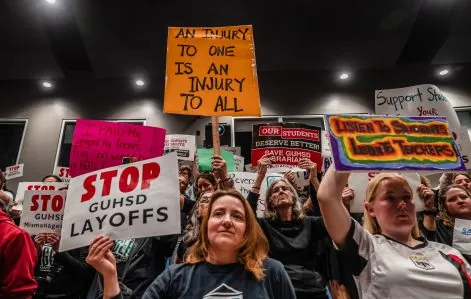The first documented gay rights organization, The Society for Human Rights, was founded in 1924. Almost a century later, we are still fighting for fundamental civil rights for LGBTQ+ people.
In 1975, the first federal gay rights bill was introduced to address discrimination based on sexual orientation. The bill later goes to the Judiciary Committee but is never brought for consideration.1
A Lawsuit is Often the Impetus to Changing the Law
For the first time in history, in 1993, the Hawaii Supreme Court declared marriage discrimination unconstitutional in Baehr v Lewin (later renamed Baehr v Miike) a case brought by three same-sex couples.
However, the supreme court sent the case back to trial court and placed the burden on the state to prove a compelling state interest as to why same-sex marriage should not exist. Before the case could be decided, the Defense of Marriage Act (DOMA) was signed into law in 1996.
DOMA defined marriage under federal law as only between a man and a woman, ensuring that whatever happened in Hawaii’s court would not force any other state’s government to recognize gay and lesbian couples married in Hawaii.2
As of 2004, same-sex marriage was only legal in one state, Massachusetts. Over the next 11 years, same-sex marriage rights spread to all 50 states through a mix of court decisions (lawsuits), ballot initiatives, and laws pushed through state legislatures.3
In 2013, the case, United States v. Windsor, challenged the federal Defense of Marriage Act. Plaintiff Edith Windsor filed a lawsuit against the federal government for refusing to recognize her marriage to Thea Spyer.
When Spyer died, Windsor was unable to claim the estate tax marital deduction that was available when the surviving spouses of the opposite sex. Spyer’s estate had to pay more than $350,000 in federal taxes.4
The Supreme Court ruled that the federal government cannot discriminate against married same-sex couples when determining benefits and protections. Justice Anthony Kennedy, who wrote the majority opinion, concluded that DOMA violated the 14th Amendment by Equal Protection Clause by denying same-sex couples access to federal benefits attached to marriage.
In 2015, the Supreme Court’s ruling in Obergefell v. Hodges determined that state bans and refusal to recognize same-sex marriages are unconstitutional. There were 14 same-sex couples and two men whose same-sex partners were deceased. The cases came from Michigan, Kentucky, Ohio, and Tennessee which had all defined marriage as a union between one man and one woman at that time.5
In Philadelphia, the Catholic Social Services (CSS) claimed they should have been allowed to decline to foster care placement with same-sex couples. In 2021, the Supreme Court decision on the Fulton v Philadelphia case, although in favor of Fulton/CSS due to contractual language, the ruling leaves intact the broader principle that governments can require contractors, including religious agencies, to comply with nondiscrimination laws including those that protect same-sex married couples when providing taxpayer funded social services.6
July 19, 2022, the House Passed the Proposed Bill H.R.8404, Respect for Marriage Act (RFMA)
The proposed bill provides statutory authority for same sex and interracial marriages. It would repeal the Defense of Marriage Act. If voted into law, the RFMA would federally recognize same-sex marriages that were valid in the states where they were entered into and prohibit states from denying benefits to out of state marriages based on the sex, race, ethnicity, or national origin of the individuals.
These benefits include parentage rights which give same-sex parents the same benefits afforded to opposite-sex parents. The RFMA would also allow the United States attorney general and victims of discrimination to file a federal lawsuit against any state agent who denies full faith and credit to a marriage license on the basis of “sex, race, ethnicity, or national origin.”7
The RFMA would not require any state to allow same sex couples to marry. If the Supreme Court overturns Obergefell v. Hodges, which established that the fundamental right to marry covers same-sex couples, the RFMA would not stop any state from once again refusing to issue marriage licenses to same-sex couples.
The bill passed the House with a large, bipartisan vote of 267-157, making it the most pro-LGBTQ vote in Congressional history. In contrast, the Equality Act, the LGBTQ movement’s highest priority bill in Congress, which would expressly add LGBTQ people to the Civil Rights Act, passed the House a year ago with a vote of just 224-206.8
Support for same-sex marriage has increased 44% since 1996 when DOMA went into effect. The 2022 annual Gallup Values and Beliefs poll showed that 71% of Americans say they support legal same-sex marriage.9
Published Statements in Support of the Respect for Marriage Act from LGBTQ Organizations
“GLAAD is proud to be among the organizations supporting the introduction of the bipartisan Respect for Marriage Act today. A vast majority of Americans from all political backgrounds support marriage equality because they know LGBTQ people, our relationships and our families deserve the same recognition and protections as any other couple.
At a time when anti-LGBTQ justices on the Supreme Court have stated their discriminatory desire to reconsider marriage equality and other decisions that protect LGBTQ Americans, we urgently need Congress to act and ensure our families continue to receive the protections that only marriage affords.” GLADD President and CEO Sarah Kate Ellis10
“We urge the Senate to join the House in passing the Respect for Marriage Act without delay. And we will continue to fight for full, lived equality for all LGBTQ+ people until the work is done.” Equality California Executive Director Tony Hoang11
“There is broad bipartisan support for the freedom to marry. Americans from all walks of life, across demographics, geography, and party lines, agree that loving, committed couples who decide to marry should also have their unions respected and protected under the law. As of last month, support for the freedom to marry is at an all-time high of 71%, making it clear that most Americans support radically inclusive appreciation for how couples participate in the institution of marriage.
For Black LGBTQ+ people, who are in both same-sex and interracial marriages, this vote could not be more critical or come at a more important time.” Dr. David J. Johns, Executive Director of the National Black Justice Coalition.12
Discrimination Against LGBTQ+ People Goes Far Beyond the Right to Marry
There have been a record number of bills passed in state legislatures that deny trans and non-binary people from access to healthcare, from updating their identity documents, from participating in sports, and use of appropriate restrooms.
Other bills allow religiously-motivated discrimination, school or curriculum restrictions, and prevent cities and other local government entities from passing nondiscrimination protections. Here is a current list of anti-LGTBQ and anti-trans bills from the ACLU.
At Haeggquist & Eck, we believe in equality, and support anti-discrimination laws. We will continue to fight for those who have been discriminated against while working or seeking work in the State of California.
If you believe you have been treated unfairly, denied employment opportunities, denied benefits, denied promotions, or denied accommodations based on your gender, gender identity, gender expression, sexual orientation, race, religion, age, or disability.
Contact Haeggquist & Eck for a free and confidential consultation 619-342-8000.





